Photographs: Courtesy Careers360.com Guillaume Benoit
From Pacman to Angry Birds, Farmville to the online Scrabble, we all like to play and score. But who creates these entertaining wonders? Meet the game designers.
With experts predicting that the game designing industry is poised to grow at 25 per cent in the next few years, here's a list of Frequently Asked Questions for those keen on being a part of the fast-growing game development industry in India and abroad.
My parents think gaming is just a hobby; the gaming industry is not 'serious' compared to Science or Engineering. Are they right? How to make them change their mind?
Analysts estimate that the revenue of the gaming industry will reach $70 billion in 2017! This evolution is a global one and India is on the way to compete with European and American developers. In fact, Indian game developers are moving from outsourcing to creating their own games.
The Indian gaming industry is projected to grow from an estimated size of Rs 8.3 billion in 2010 to an estimated Rs 25.3 billion by 2015, translating to a cumulative growth of 24.9 per cent over the next five years.
Consoles and PCs were the traditional way of playing. But the Internet medium and mobile gaming brought new opportunities for game developers to create their games and be well-known. You don't always need to be a big game developer to release games and gain money.
Mobile game developer Rovio, the company behind the famous Angry Birds generated $106 million in 2011 and the number of employees grew from 28 to 224! Manvendra Shukul, CEO of interactive entertainment and game development company Lakshya Digital shares, "Gaming is a viable career option -- I would say that is the state of gaming industry in India today."
I'm a hardcore gamer. So I would be a good game designer, no?
Game designing is not playing. And playing is not game designing. Even if a part of the job of game designer includes playing -- mostly the game you're working on and its competitors -- he is no player.
He is "above" playing. The game designer thinks about what a player does, sees and more importantly 'feels' when he plays the game. He analyses players' behaviours and adapts the game to them. He creates gaming 'experiences. Therefore, being a hardcore gamer could be good if you want to test games, but not always for game design.
The author is Head of Department, Game Design at DSK Supinfogame, Pune.
Please click NEXT to continue reading...
The game designer is in charge of the 'fun' of the game
Image: Game design students at DSK Supinfogame discussing playtest of play prototypesPhotographs: Courtesy Careers360.com
But what is game design?
Game design is "the process of designing the content and rules of a game and design of gameplay, environment, storyline, and characters". What are the rules? How does the player control his character? How is the game scored? How does the level of difficulty change with play? What makes the game fun or challenging? What are the decisions players can take?
These are some questions the game designer has to "solve". The game designer is in charge of the 'fun' of the game and has to make the game engaging for every player.
As Soren Johnson, Design Director for Zynga, points out, the game designer manages "that loop between the player and the machine where you're presenting him with decisions" and he has to "make sure every step of that loop works out, because there are lots of ways a game can fail".
To summarise, a game designer could be compared to an architect: he builds the system, with the rules, his content. But, the tasks of the game designer "vary from project to project and from game genre to genre", observes Chris Avellone, game designer at Obsidian Ent. That makes the job always interesting and challenging.
What are the core job roles?
The game development team involves project manager, game designers, artists, programmers, sound designers and testers.
In small companies, it's common to have a project manager who also does some programming tasks, or to have game designer to do art work. The bigger the company, the more specialised your job is. You can also freelance.
Top-grossing games of 2011
- Angry Birds (Rovio)
- Fruit Ninja (Halfbrick Studios)
- Minecraft (Mojang)
- Plants vs Zombies (PopCap)
- Call of Duty: Back Ops (Activision)
- Starcraft 2 (Activision Blizzard)
- Portal 2 (Valve)
- Lego Star Wars 3 (LucasArts)
- Zumba Fitness: Join the Party (Majesco)
- Just Dance 2 (Ubisoft)
- Pokemon Black & White (Nintendo)
The different types of game designers
Image: Popular social game Farmville is created by Zynga, which has an office in BangalorePhotographs: Courtesy Careers360.com
Are there different kinds of game designers?
Yes! The system designer creates the game mechanics, rules and decision loops. Some are more focused on the progression and definition of the narrative part of the game, called 'content designer'. There are also those who create the story, the 'writer', those who think the human-machine relation, called 'user interface designer'.
And the ones who think the levels and build the world are the 'level designer' and 'level builders'. However, level designers don't create new game mechanisms; they just use the one made by system designer to create game situation.
Depending on your experience, you could be in charge of a team, and/or a full section as Lead Game Designer, Lead Level Designer, or the most important one, Creative Director.
Is good drawing skill important?
Yes but not compulsory. What's required is quick sketching or schematisation (manual or digital) to express your ideas of a game situation, about the element on the screen. It's useful for game designers to share ideas with the rest of the development team -- it's a key to success.
Are there job opportunities as an artist in this field?
There are plenty in video games. Artists are here to express the vision of the game designers and also to create the assets needed for the development of the game. Therefore, we have on one side, the concept artists who work closely during the earlier stage of development to put pictures on the ideas and concept of the game design. It could be for characters, environments, objects, game situations, etc.
And on another side, we have the artists dedicated to production. They could be both working in 2D or 3D, regarding the type of game produced and their tasks. Character modelling, animation, texturing, SFX as well as creating the user interface are some of what they have to do. In this part, gaming and animation are really close.
Top game development companies
- Zynga
- Walt Disney International
- Dhruva Interactive
- Jump Games
- Ubisoft
- Activision Blizzard
- Rovio
- Electronic Arts
- Rockstar
- Bethesda Softworks
- Eidos
Prospects vary as per your skill and expertise
Image: Promo for The Plan using game engine Unreal Engine 3Photographs: Courtesy Careers360.com
Job profiles
System designer: Creates the game mechanics, rules and decision loops
Content designer: More focused on progression and definition of the narrative part of the game
Writer: Those who create the story
User interface designer: Evolves the human-machine relation
Level designer/Builder: Conceptualises and builds various levels
Note: Depending on experience, you could be in charge of a team, and/or a full section as Lead Game Designer, Lead Level Designer or Creative Director (the most important one)
What is game building? Do I need to know programming?
When game designers create their game mechanics, their rules, they often have to test it (and so on correct it). Level builders also need to see if the game will work properly. So, both need to do 'scripting', which is different from programming as they just have to copy-paste existing scripts (made by the programmer) and change values.
Therefore, they don't create the 'programmes' that make the game world. They only use -- through scripting -- tools made by the programming team.
What is the entry-level salary?
According to the Game Developer Salary survey of 2012, a game designer could expect an entry-level salary around $48,000, while for game artists it is $46,000.
However, those salaries are global and average over thousands of companies. Big companies will mostly pay more than a small one. Furthermore, experience, knowledge of gaming tools and methods have a huge impact on your salary.
What softwares do game designers use for development?
Nowadays, a lot of game companies use third party game engines (buy or rent them from another company) like Valve's source, EPIC's UDK, Crytek's Cryengine etc.
Internet could also be listed as one major tool to know. Even with the help that comes with other software and the support of the team, you will often need to look by yourself on the Internet to find solutions, references, ideas and sometimes to work with it. Being able to use search engines, wikis, online help, networking websites and forums will make a great difference and mostly help to avoid losing time on any issue during the development stage.
Game designers also use Adobe Photoshop, MS Office Visio, and Flash to make mockups of the game, quick sketches of gameplay situations, of level design as well as creating simple prototypes to test an ideArtists rely on artistic and graphical tools as Adobe Suite and Zbrush for the 2D assets. And 3D tools like Max, Sketchup and Maya for the 3D modelling and animating.
Programmers don't really rely on dedicated softwares, maybe only Notepad. Programming languages are key 'tools' for them. Most of the game engines are in C++/C#. But a good knowledge of Flash, HTML5 and web languages is good to have to work as they are mainly used for web and mobile development.
Communication, artistic and mathematical skills are crucial
Image: A mindmap assignmentPhotographs: Courtesy DSK Supinfogame/Careers360.com
What are the specific skills of a game designer?
Good writing and communication skills are needed as s/he must be able to share his/her vision with his team members.
Moreover, mechanics, rules and systems (as the economic system) are entirely created from scratch by him. Therefore, knowledge in Mathematics is a real plus. Artistic skills are needed to be a game artist. Drawing and sketching with different art styles is a great beginning.
If you already have your own art style, it's even better. However, drawing skills are not mandatory, especially if you plan to work in 3D.
Knowledge of various languages -- object-oriented, web, and database -- is mandatory to be a game programmer, especially the upcoming languages as C# or HTML5. Also having a good knowledge in Mathematics like linear algebra, calculus or probabilities is undeniably a key point.
What is the mindset one requires to work in the gaming industry?
Be passionate and motivated. Be prepared to work under pressure and stick to deadlines. Paying attention to quality and detail is essential as consumers have high expectations when choosing games.
You also have to be able to work under minimal guidance, even if documentation is ready and available, it is often up to you to see the scope of your tasks. What is important is that you should have the desire to learn.
Game development is a team effort. As you will work in teams, with seniors, and also face players, you should accept criticism and use it as a constructive leveler for your job.
The more projects you do, the more you improve your skills
Image: Students at DSK Supinfogame collaborate on a projectPhotographs: Courtesy DSK Supinfogame/Careers360.com
How do I increase my knowledge?
K Rajesh Rao, Founder of Dhruva Interactive, one of India's oldest gaming companies says, "If you've played a lot of games from beginning to end, you start understanding the ladder of challenge. You understand the different learning curves for different kinds of games."
For a game designer, video games shouldn't be the only knowledge base. Cards, boards, sports are also games you need to survey. Artists should pay attention to the various art styles, their main artists, and their methodologies.
This should be done in every medium: painting and animating surely but also in graphic novels, street art, etc, from past to present, from anywhere in the world. For programmers, a dedicated knowledge of game engines or on a programming speciality (graphical rendering, network) is essential.
Knowing a language is good, but languages appear, evolve, disappear! It's more about the ability to move from one to another.
Do girls also join the gaming industry?
Yes, plenty! There are really famous and influential women game designers like Ami Jo Kim, Jane McGonigal and Brenda Brathwaite. Those public figures of game design had influenced gaming industry by their theory and their work for the next 10 years. In project management, there are famous ones like Pauline Jacquet, Director of gaming company Ubisoft (Pune).
How to enter a good company?
First, learn the basics from professionals at dedicated schools. You could also self-learn with tutorials on the Internet and books. However, you will waste time training in only some aspects of your job, miss some tricks and opportunities to work on latest tools and on projects monitored by professionals from the industry. With the network of the school and the professionals coming there, it's easier to enter companies.
Two, put your ideas on paper and experiment through rough prototypes. It's an opportunity to test your ideas and your skills, to confront them to the players and improve through their feedback. The more you work, the more your chances of being 'discovered'.
Three, you need references and experience. The more projects you do, the more you improve your skills. Recommendations are also important in this industry, especially when it's time to change jobs.

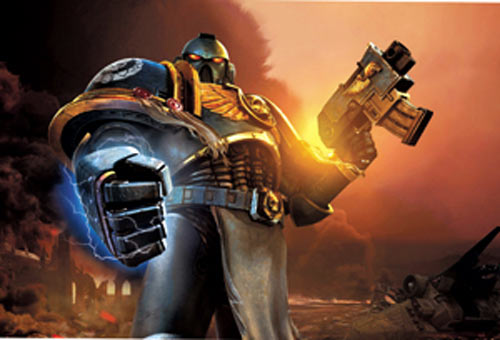
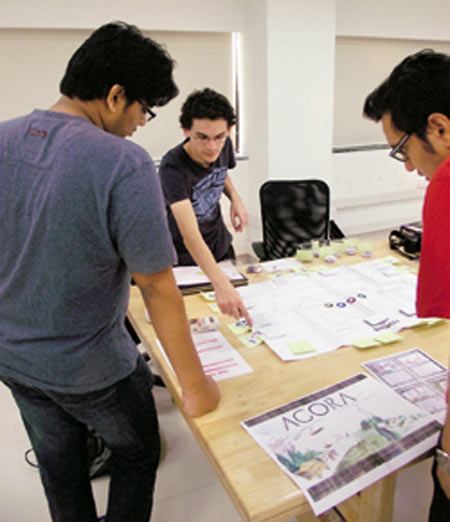
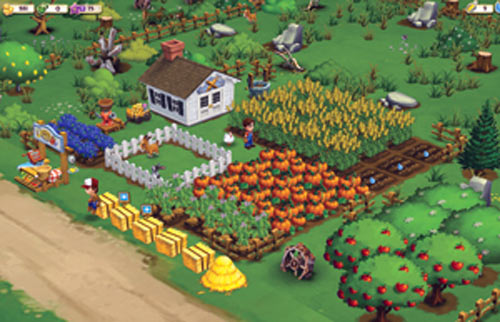
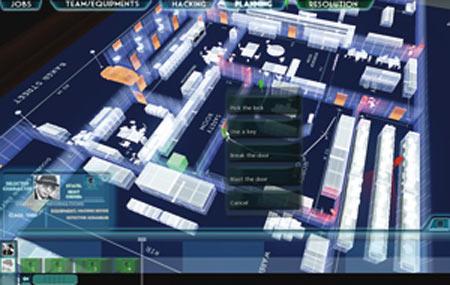
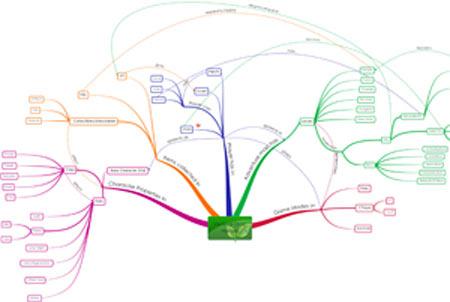
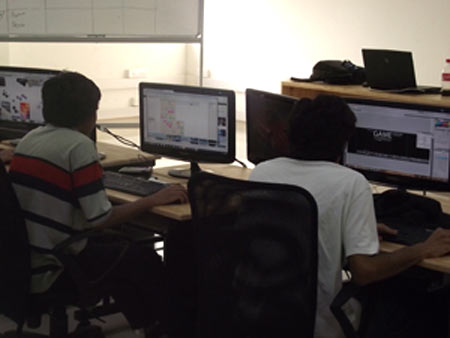
Comment
article